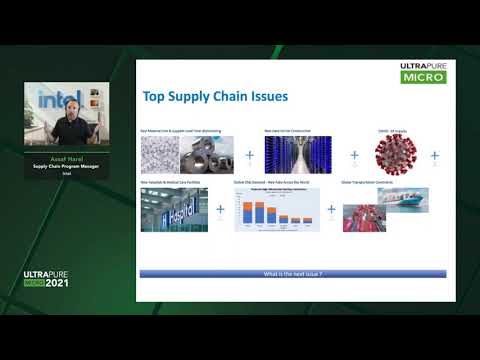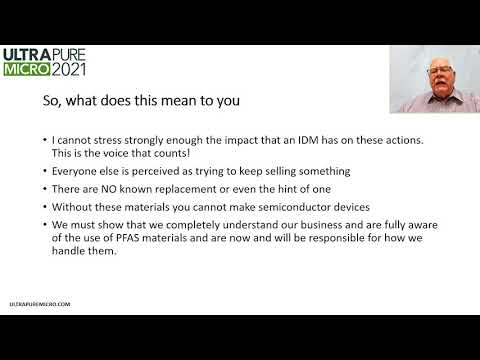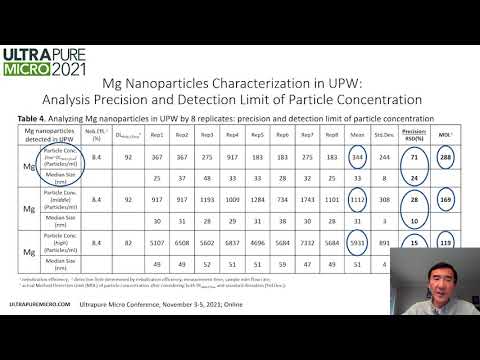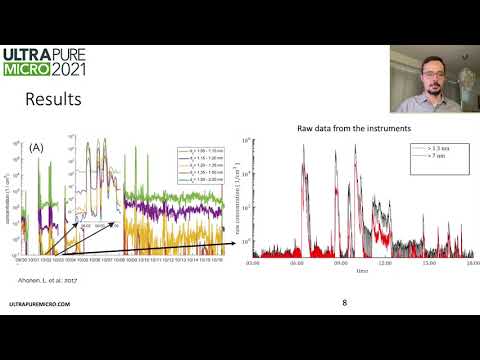
Collaborators
Tags
Supply ChainPFASUPWAirborne Molecular Contamination (AMC)Best presentation awards: UPM 2021
At the UPM 2022 conference in Phoenix, four presentations from the previous year were awarded best presentation for their respective track. Congratulations to all involved! Here is a summary of their great insights and access to the recordings:
Share this insight
Assaf Harel, Intel, for his presentation Water and Wastewater Supply Chain Management (Water and Wastewater Management track).
A boom in construction across high-tech industries is occurring alongside material shortage, causing unprecedented supply chain bottlenecks. How have these issues changed manufacturer’s approaches towards procurement? This presentation explains how supply chain issues have affected lead times from an end-user perspective, as well as methods for improving the productivity of collaboration between suppliers and manufacturers.
Bob McIntosh, Enviro-Energy Solutions, for his presentation The Current Effort to Limit or Eliminate Fluorocarbon Materials (High-Performance Chemicals Track).
PFAS-containing polymer-based components are vital for semiconductor manufacturing – but what do potential upcoming regulations on PFAS in both the USA and EU mean for continued operations? Will restrictions require the industry need to track all incoming and outgoing PFAS, or even find alternative materials for critical components? This presentation outlines the PFAS problem, the regulatory timeline, and important actions the industry can take to mitigate the issues.
Jinjin Wang, Air Liquide, for his presentation Nanoparticles Characterisation for Semiconductor UPW Production System Monitoring using ICP-MS (Ultrapure Water track).
Inductively Coupled Plasma – Mass Spectrometry (ICP-MS) is commonly used for the measuring and determining the elemental composition of inorganic particles in ultrapure water (UPW). However, what are the capabilities of this technology to measure the composition, concentration, and size of nanoparticles as small as 2nm? This presentation displays data and analysis explaining the capabilities and limitations of this metrology.
Joonas Vanhanen, Airmodus, for his presentation Measurement of Nanoparticles and their Precursors (Airborne Molecular Contamination and high-purity gas track).
Gas compounds can form small molecular clusters that may be stabilized through reaction with other compounds in ambient areas, which can produce stable aerosol particles. How can engineers measure these clusters as an early indication that particles will be formed? How can the process of particle formation be tracked? This presentation explains metrological methods of measuring nanoparticle formation in a cleanroom.
Share this insight
Related insights
How do we actually drive transformative change in semiconductor facilities? UltraFacility 2024 Closing Panel Report-Out.

Orla McCoy
Global Water Intelligence
5 key UPMU workshop takeaways: UPW system design principles

Georgia Bottomley
Global Water Intelligence
News-in-Brief: January 2024
Related resources

Water and wastewater supply chain management

The current effort to limit or eliminate fluorocarbon materials

Nanoparticles characterisation for semiconductor UPW production system monitoring using ICP-MS
